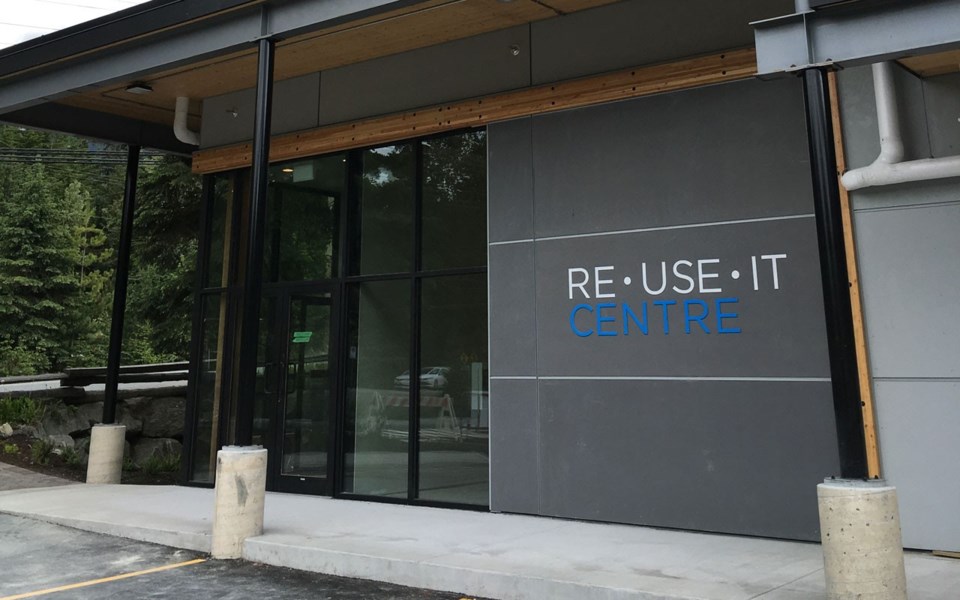Most people think, and I agree, that we can measure how civilized we are by the way we treat the vulnerable in our communities.
That is why this past week marked such an important milestone for Whistler—our community services society (WCSS) moved into its brand-new building, ensuring it remained committed to the important work it has always done, as we face some tough challenges.
A couple of weeks ago, the new executive director of the society, Jackie Dickinson, spoke to scores of people who attended a community planning session on the new Official Community Plan.
Her words were sobering.
"(Community) is crucial to who we are it, our sense of belonging, how we feel in this place and how we move forward," she said.
"(The WCSS) play(s) a crucial role in making sure this community is in a healthy and safe place for all. And we ultimately feel that we are important because if we can't take care of our people, then we all lose in the equation, we all fail.
"Every day, we get to hear people's stories, and what we learn from that and what we hear from them is that although we live in a wonderful, beautiful place, we are not adverse to challenges, pain and trauma and it is our goal and our responsibility to listen to people.
"People will forget what you said, people will forget what you did, but no one will forget how you made them feel."
That was a sentiment that was likely all too familiar at a gathering at the WCSS' new home on Nesters Road last week to remember one of Whistler's more colourful characters, Sylvain Travers, who passed away late last month.
He has been described as homeless, and while this is technically true, Whistler, our whole community, was in fact his home.
Not so many months ago, I saw him outside the library and asked if I could help in any way that day. That question turned into a pretty lengthy conversation about just what I could do to help Whistler, and by the time it drew to a close, I was feeling pretty sheepish about how little I was doing to help people and how much needed to be done.
Despite living here for more than two decades and taking the time to listen to people I share this community with, I realized there was an awful lot about what it takes to live here that I truly didn't get.
Many of us take way too much for granted.
We are living in the best of times and the worst of times in the resort right now. We are busy and successful and our business leaders are continuing to push the envelope in creative, innovative ways to keep us there.
But there is a cost to this frantic pace and organizations like the WCSS are seeing it firsthand. It is seeing the impacts on mental health with, as Dickinson tells us, more complex problems being faced when things go wrong.
Affordability and standards of living go along with this. We all know this central truth, yet local social media sites are still full of ads for tenants who can pay $850 each to share a room in a home (at least!).
And with our population adding 2,140 permanent residents over the past 10 years, reaching 11,840 people in 2016, the need for housing is only going to get more urgent.
The "success" of the WCSS is not luck, nor does it come from handouts. The organization is a going business concern—though obviously as a non-profit.
Its social enterprises, The Re-Use-It and Re-Build-It centres, experienced a four-per-cent increase in sales from last year, bringing in total revenue of $1,567,486.
"It came one couch and one shirt at a time, and we are extremely grateful for it," said Dickinson at WCSS's Annual General Meeting last week.
Current assets exceed current liabilities by $933,589.
WCSS also received over $1,170,072 in donations and grants for programs and the new building. A big thank you to all who gave.
These funds allow WCSS to offer robust services to residents in need, including: access to court services; the Birth, Baby & Beyond program; a camp fund; the Connect Whistler event (formerly Whistler Welcome Week); counselling assistance; emergency financial assistance; yoga; the food bank; the Healthy Choices programs; the Helping Hand Volunteer Assistance program; an income tax program; Kidsart; KidSport; outreach services; parent-infant drop-in; peer educators; PLAY Credit; Santa's Helpers; school lunch programs; a speaker series; the Support Network of Whistler (SNOW); and the Whistler Survival Guide to name just some of them. (Go to mywcss.org for a full list of programs and to get support.)
And let's be clear about these programs—if Whistler had to rely on government handouts or grants alone, most of them would not exist.
This is yet another example of our community solving problems in its own unique way.
Let's make sure we keep doing this. If you can support the WCSS' fundraising efforts, please do; if you have a few hours to volunteer and help, that's also valuable ... and if you need help, ask.
We are all in this together.




